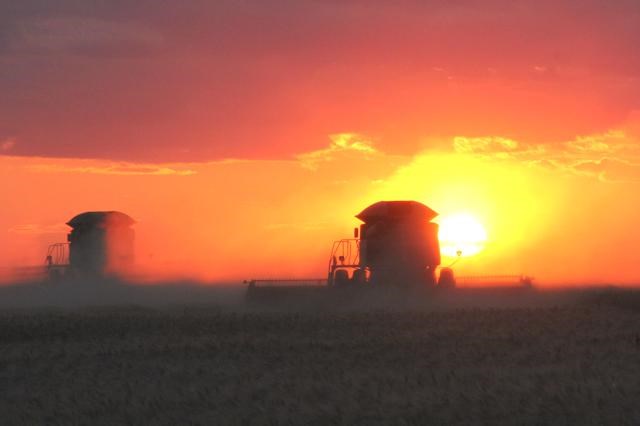By Greg Nikkel
Agriculture deserves to be more front-and-centre for provincial and federal levels of government and not just a “side-issue” as most governments currently regard it, said Fillmore farmer Jake Leguee.
The 29-year-old third generation farmer recently returned from Des Moines, Iowa, where he took part in a Global Farmer Network roundtable, held as part of the World Food Prize series of events held in October.
Leguee, who farms with his family in the Fillmore area, was the only producer from Canada to take part in the invitation-only round-table forum along with farmers from 13 other countries around the world, discussing issues that affect them as farmers, and as an industry world-wide.
“It was eye-opening,” said Leguee of the experience of sharing about agriculture with other producers. “The best word I could use to describe it is perspective. I gained a new perspective on how good we have it here in Canada, with access to technology, with our freedom to pursue our own objectives, with safety of both the food we eat and the products we have access to.”
For some of the farmers at the round-table, particularly those from African countries, their challenges include dealing with the military, or with government corruption. “Their perspective is different. It’s a part of life. In some of those countries there is democracy, and it doesn’t sound very different from ours, but for some farmers the issue is whether they own the land they farm, or the produce they grow on it.”
As the farmers discussed issues they have to deal with, some have issues with access to inputs that they need, such as fertilizer or genetically-modified seeds.
“In Africa, they desperately need fertilizer. They have disease issues that they can’t deal with,” said Leguee, adding that European Union countries won’t take crops grown from GMO seeds, which limits the markets that these countries can sell to.
Some issues were common to many of the farmers, such as farmers having problems getting enough skilled labourers, whether they were from Nigeria, New Zealand or Canada.
In some countries, women who farm alone are looked down on, while “here in Canada we have a real advantage, in that it’s quite possible for anyone to farm, as long as you have the capital to operate,” said Leguee.
Asked if family-owned farming operations were common amongst the group in the roundtable, Leguee said quite a number of were, pointing out one farmer from England whose family had owned their farm for nine generations. The farmers from Africa were also from family-owned operations, but they tended to be first-generation farmers.
One farmer from South Africa had difficulty having access to inputs, where here in Canada, a farmer can go to a dealer and arrange to buy whatever inputs they need for their crops. In Africa or India, there seemed to be corruption in the ag industry where people were just trying to make a quick buck rather than selling good-quality farm inputs.
“As farmers, we’re not that different from each other. We all have similar issues, although some deal with bigger issues. We all struggle with access to labour, and with the public perception of agriculture, and with succession so we can pass on our farms to our children. A lot of the challenges are similar to challenges faced around the world,” said Leguee.
As the roundtable discussed ideas of how to improve things, he noted some of the young African farmers were trying different things to get youth interested in agriculture.
A common denominator for many farmers is the “top-down” approach to agriculture, where governments and ag companies put out ideas on how to fix problems in farming without getting any input from the farmers themselves.
People and governments “need to hear our stories, and need to understand why farmers should be at the table for food policy development. Farmers need to be present at those discussions at every level, and we as farmers need to do a better job on our agriculture and agri-food policies,” he said.
Leguee said this was in evidence even at the World Food Prize event, as with all of the panels convened for discussions of agriculture, only one had a farmer on it from the Global Farmer Network.
“It’s hard to get that across, because as a farmer you’re pretty small, but as a group, we have a larger voice,” said Leguee.
“For a really long time, agriculture has been a background business, especially in developed economies. I don’t think that’s right. Agriculture needs to be one of the central focuses of government,” he added.




